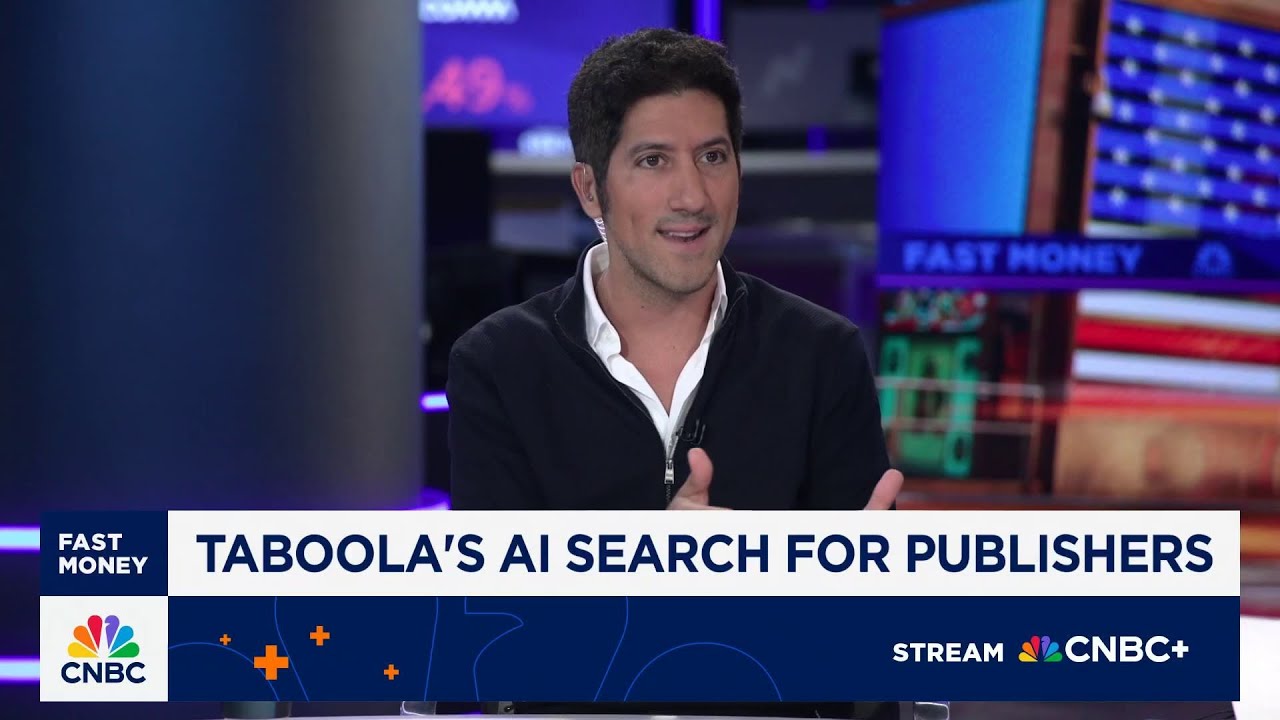Taboola CEO Adam Singolda introduces Deeper Dive, a new generative AI search engine designed to provide more comprehensive, context-rich, and interactive responses while ensuring fair compensation for publishers’ content. He emphasizes that this tool aims to enhance user engagement, support publishers’ monetization, and create a sustainable ecosystem that benefits both content creators and users seeking deeper insights.
In the video, Taboola CEO Adam Singolda discusses the launch of a new generative AI search engine called Deeper Dive, designed to support publishers and improve user engagement. He highlights the limitations of current AI tools like perplexity or simple search engines, which often provide short summaries without directing users to original publisher content or enabling meaningful conversations. Singolda emphasizes that these tools tend to favor short answers over comprehensive, context-rich information, which can undermine the value of publishers’ content and reduce traffic and revenue for the industry.
Singolda explains that Deeper Dive aims to address three main challenges. First, current AI solutions often offer overly simplistic responses that don’t encourage users to visit publisher sites for more detailed information. Second, these AI tools frequently use publisher content without compensating the publishers, raising concerns about content monetization and fair compensation. Third, the new tool seeks to facilitate more interactive, conversational experiences where users can ask nuanced questions and receive detailed, contextually relevant responses, including links to original articles and additional resources.
The CEO envisions Deeper Dive as creating a new space for users who seek more than just quick answers—particularly when making important decisions related to finance, travel, or commerce. Unlike traditional search engines or AI tools that provide limited information, Deeper Dive aims to enable users to have meaningful conversations, gather comprehensive insights, and access real publisher content, thereby fostering a more informed decision-making process. He draws a comparison to TikTok, suggesting that short-form content alone isn’t enough for users who need deeper, more reliable information.
Singolda also touches on the relationship between publishers and AI developers, noting that publishers have been approached with offers to license their content for small sums, often without fair compensation. He mentions that some publishers, like News Corp, have issued cease-and-desist orders or taken legal action against unauthorized use of their content by AI companies. He believes that publishers are increasingly recognizing the need to protect their content and are seeking solutions that ensure fair monetization and control over their intellectual property.
In conclusion, Singolda suggests that the industry is at a crossroads, with publishers demanding better terms and AI companies developing tools that can benefit both users and content creators. He foresees a future where AI-driven search engines like Deeper Dive will serve as valuable complements to traditional publisher websites, helping users access richer, more accurate information while ensuring publishers are fairly compensated for their content. This approach aims to create a sustainable ecosystem that balances user needs with the interests of publishers.
